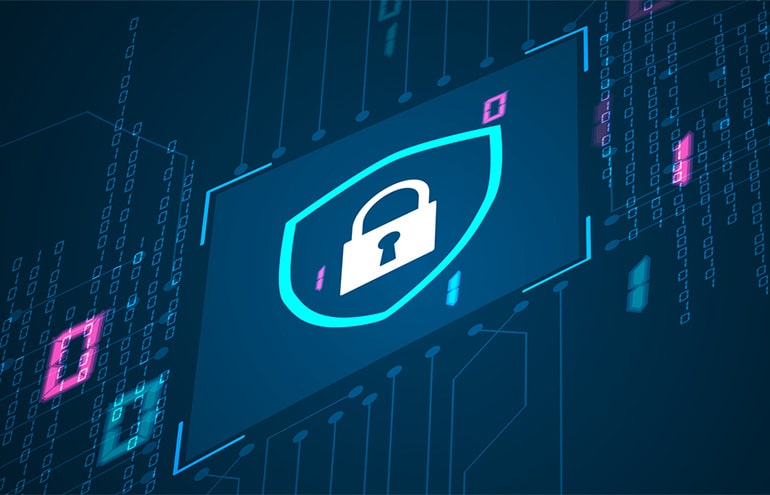Are security concerns limiting your firm’s use of legal tech? Not sure how to safeguard your data and, more importantly, client data? You’re not alone. According to Bloomberg’s Legal Ops and Tech Survey, 54% of law firms cite security concerns as one of the top barriers to implementing new legal technology — more than budget constraints, time issues or user resistance.


While these concerns are valid — 21 law firms reported data breaches in the first five months of 2024 — security issues shouldn’t hold you back from exploring and leveraging new legal tech. So, if you’re hoping to take advantage of emerging technology, start with this security checklist to help your firm evaluate vendors and adopt new solutions while building user confidence to minimize security risks.
Keeping Bad Guys at Bay
Multi-factor authentication (MFA)
The first item on your list of legal tech security “must-haves” is multi-factor authentication (MFA), which prevents unauthorized users from accessing your systems. This adds a layer of security when logging in and requires users to provide two or more verification factors to gain access to systems.
Single sign-on
If you already have a robust tech stack, it may be helpful to consider a solution that offers single sign-on (SSO), which centralizes authentication and often incorporates MFA. Instead of remembering different passwords for each system, SSO lets users access multiple applications with just one login, which lowers the risk of weak or reused passwords.
Data encryption
Strong data encryption is another important factor in protecting your information from unauthorized access. Legal tech solutions should encrypt your data both in transit and at rest. This is crucial for collaboration tools such as messaging or video conferencing apps, which are an increasingly important part of effective remote work.
Ensuring Access and Activity Controls
End-to-end user activity monitoring
Used to provide a comprehensive audit trail, end-to-end user activity monitoring can help detect unusual activities. For example, if a user attempts to access sensitive information, perform functions outside of their duties, or download large amounts of data, these activities can be flagged for investigation and a quick response.
Role-based access controls
Another key security measure is role-based access control. While each user should have access to the information they need to do their work, they shouldn’t have access to all the information stored within your systems—ethical and confidentiality considerations are essential. Role-based access allows you to set granular permission levels, ensuring only those who need access to specific data can view it, helping to maintain client confidentiality.
Selecting a Security-Focused Vendor
Security audits and testing
In addition to the security features above, it’s important to evaluate the practices of legal tech providers. Ensure your providers perform routine security audits and testing to identify and address any vulnerabilities.
AI transparency
With the rise of generative AI (GenAI) in legal tech, it’s crucial to ensure that your firm and your users have a basic understanding of how it works in the tech you are purchasing, and how it uses and protects client data.
Security certifications
Legal tech vendors should also hold standard security certifications, such as Service Organization Control 2 (SOC 2), which confirms that they follow best practices in managing data securely. Vendors with these certifications demonstrate a commitment to maintaining the highest standards of security and privacy.
Data privacy compliance
Ensure your solution complies with relevant privacy regulations, such as GDPR and CCPA. Confirm that the vendor has mechanisms in place to protect sensitive information and respond to data subject requests.
Building Confidence With Your Teams
Employee training programs
In addition to adopting strategies and technology to reduce risk, law firms can proactively ensure their employees are well-prepared to handle security and data privacy challenges by implementing comprehensive, ongoing training programs. Education should not only cover security measures like multi-factor authentication (MFA) but also the latest techniques used by cybercriminals, such as phishing attacks, to significantly reduce the likelihood of a breach.
Read “Law Firm Cybersecurity Awareness: Training for Employees Has Never Been More Critical.”
Incident response plans
Internal teams should have visibility to the firm’s incident response plan, so everyone knows the exact steps to take if a security threat is detected. Equipping employees with this knowledge not only strengthens your firm’s defenses but also empowers employees to respond swiftly and effectively in the event of an issue. For example, should a ransomware attack occur, trained staff can quickly implement the incident response plan, allowing systems to be restored using data backups.
Data backups and disaster recovery
In your incident response plan, it’s important to include information about data backups and disaster recovery plans to help mitigate risk. Partner with cloud-based vendors to ensure you understand their data protection and how you can align to mitigate risk.
Secure Your Legal Tech Purchase
By focusing on these must-have security features, law firms can protect themselves against increasing cybersecurity risks, meet client expectations for data security, and take advantage of the latest technology.
Image © iStockPhoto.com.


Don’t miss out on our daily practice management tips. Subscribe to Attorney at Work’s free newsletter here >

Recent Comments